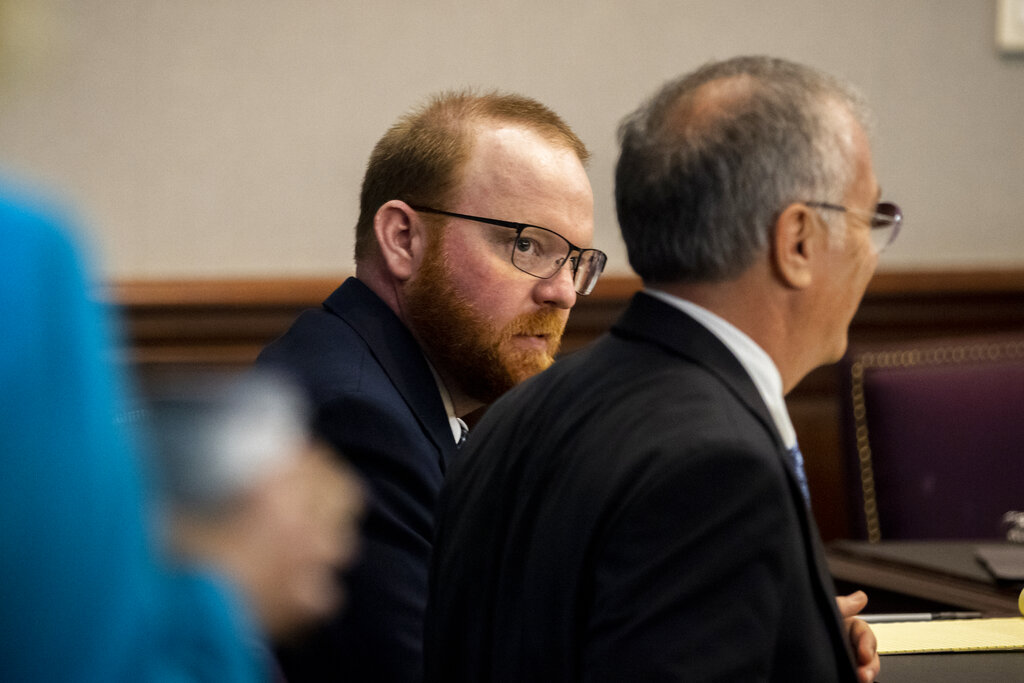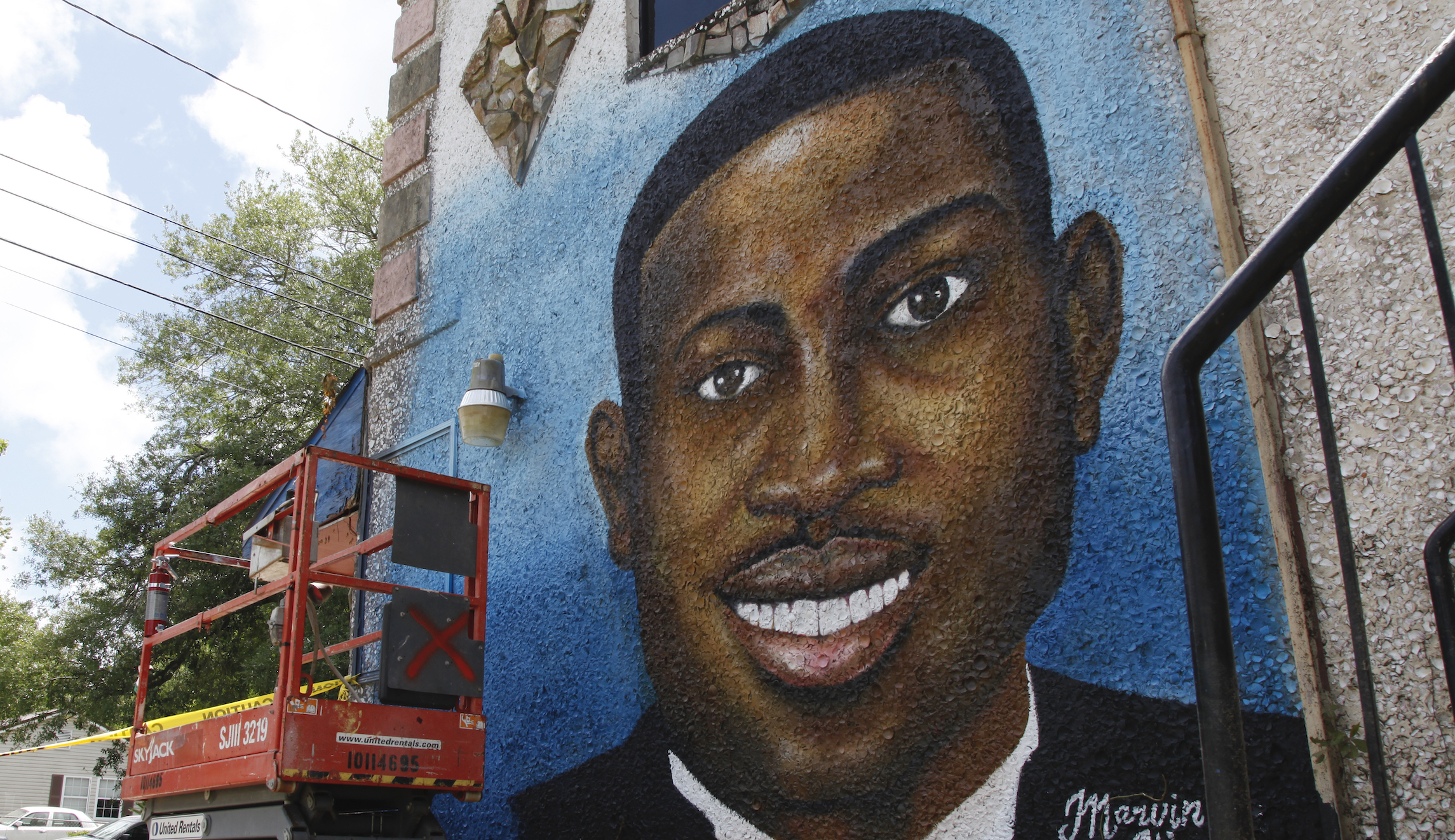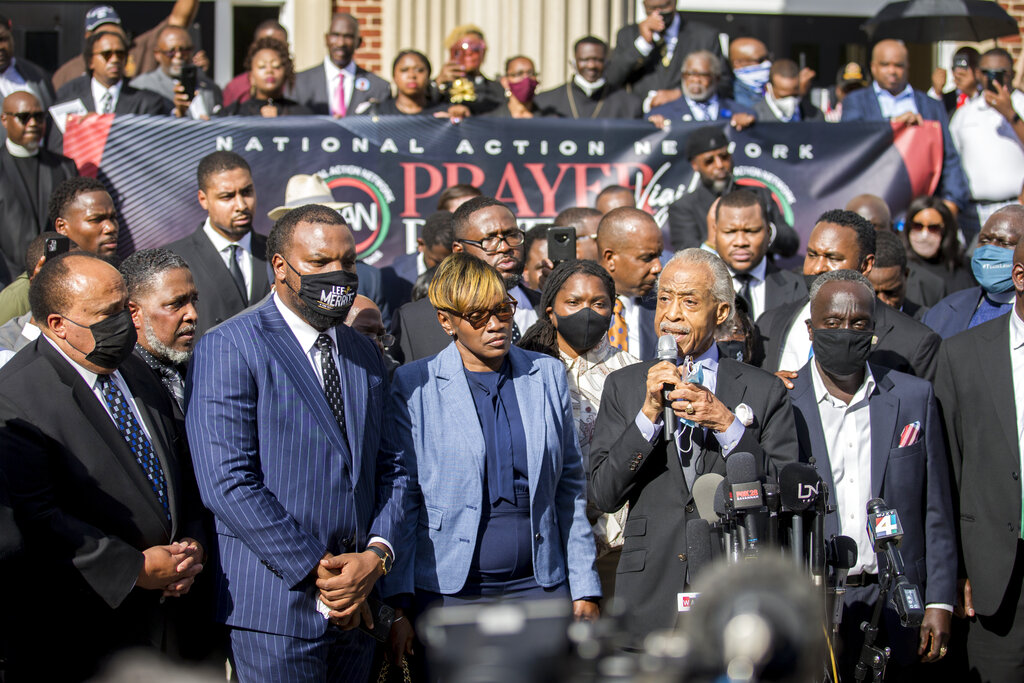The white Georgia man who fatally shot Ahmaud Arbery testified Thursday that the black jogger did not speak or threaten him before he raised his shotgun and ended Arbery’s life.
Travis McMichael said he was “under the impression” Arbery was a threat because he ran toward him. He added that he had also seen Arbery trying to get into his neighbor William “Roddie” Bryan’s truck, but that there was no direct threat. Bryan joined McMichael and his father, Greg McMichael, in pursuing Arbery.
“All he’s done is run away from you,” prosecutor Linda Dunikoski said. “And you pulled out a shotgun and pointed it at him.”
PROSECUTION RESTS CASE IN AHMAUD ARBERY MURDER TRIAL AFTER EIGHT DAYS AND 23 WITNESSES
McMichael’s account of what happened that fateful February day is the first time any of the three men charged in Arbery’s death has publicly told his side of the story.

McMichael testified that Arbery forced him to make a split-second “life or death” decision after he grabbed his shotgun, a statement that didn’t line up with what McMichael initially told authorities.
“So you didn’t shoot him because he grabbed the barrel of your shotgun,” Dunikoski said. “You shot him because he came around that corner and you were right there and you just pulled the trigger immediately.”
“No, I was struck,” McMichael replied. “We were face to face, I’m being struck and that’s when I shot.”
The defense rested its case Thursday afternoon after calling seven witnesses, including six neighbors who testified about their concerns over crime in the Satilla Shores neighborhood near the port city of Brunswick.
The McMichaels are accused of arming themselves and going after Arbery, who was jogging through their neighborhood on Feb. 23, 2020. The father and son duo, who have close ties with local law enforcement, chased and cornered Arbery before Travis McMichael opened fire. They claimed they thought Arbery was stealing and that security cameras in an open-framed house under construction had previously caught him on tape, though investigators from the Georgia Bureau of Investigation rejected those claims.

The McMichaels and their neighbor, Bryan, have been charged with nine counts each, including malice murder, felony murder, and aggravated assault.
The state rested its case Tuesday after calling 23 witnesses during eight days of testimony, ending with the medical examiner who performed the autopsy on Arbery’s body and the GBI’s lead detective in the case.
Closing arguments begin Monday.
Outside the Glynn County courthouse, more than 700 black pastors rallied and prayed.

The Associated Press reported that many carried signs reading “Black pastors matter,” while others wore buttons with Arbery’s picture and the hashtag #JusticeForAhmaud.
The Revs. Al Sharpton and Jesse Jackson were both in attendance.
Bryan’s defense attorney asked the judge earlier in the trial to remove Sharpton and Jackson from the gallery because their presence might unfairly sway the almost all-white jury. The judge said no.
CLICK HERE FOR MORE FROM THE WASHINGTON EXAMINER
“No lawyer can knock us out,” Sharpton told the crowd. “Because no matter where you are, God is there. We are going to keep coming until we get justice.”
Also in attendance was Martin Luther King III, the son of slain civil rights leader Rev. Martin Luther King Jr.
